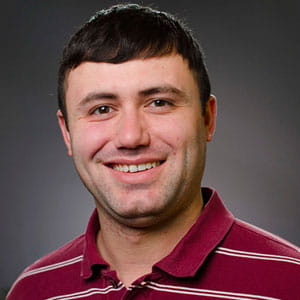Prospective Students Get Look at High-Tech Nursing at Drexel
 By Frank Otto
By Frank Otto
As the College of Nursing and Health Professions students walked into the room, they found a patient lying unresponsive on the floor.
Quickly performing an assessment, they initiated a “Rapid Response” to treat the patient. Throughout this, the students used tools like Google Glass and a digital stethoscope to enhance their abilities to care for the patient.
All the while, high schoolers and their parents looked on.
So went the simulations in the College of Nursing and Health Professions’ Accepted Students Days, when prospective students visit Drexel and get their first experiences of what living and learning on campus will be like.
Last weekend and the weekend before, the prospective students who visited campus got to see Drexel students use new gadgets in their training simulations for the first time.
“The students enjoyed using the new technology and look forward to an expanded use of the various devices for future simulations,” said Carol Okupniak, assistant clinical professor of nursing, who specializes in simulations.
Drexel students using the Google Glass were recording what they were seeing, which was being projected onto a television for faculty and other observers to see and later use to debrief the students. The digital stethoscope also records, though it records the sound of the heart and lungs for playback and analysis later.
Additionally, the students had the opportunity to use a Livescribe, a digital pen with a built-in camera that pairs with a special notebook that projects onto a monitor.
On top of that, two different sets of library resources, Clinical Key and DynaMed, were available for the prospective students to use to aid them.
“Parents were impressed with the high level of technology available for student use at Drexel,” Okupniak said.
Becoming familiar with tools that will likely become more popular in the medical field in the future gives Drexel’s students an adaptability that will be valuable when they graduate.
“Drexel students can use emerging technologies to help them with critical thinking skills, to analyze important data necessary to care for patients, and to help them solve complex clinical problems,” Okupniak said.